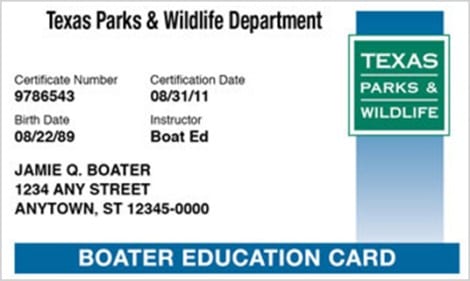 By Bob Currie, Recreational Boating Safety Specialist
By Bob Currie, Recreational Boating Safety Specialist
U. S. Guard Auxiliary Base Galveston Flotilla
Whenever I perform a Vessel Safety Check (VSC), one of the first questions on the VSC form that I ask is whether the operator has taken a safe boater course. If you were born on or after September 1, 1993, then you are required to take the course and you are required to carry your Boater Education Card with you when operating a boat. It’s not just some hoop you have to jump through; it is a course that could save your life many times over by following the principles taught within the course. This column will outline the course so that you will have an idea of the scope of the class.
The Base Galveston Flotilla of the US Coast Guard Auxiliary operates out of the US Coast Guard base on Galveston Island. They aid the Coast Guard by providing maritime observation patrols in Galveston Bay; by providing recreational boating vessel safety checks; and by working alongside Coast Guard members in maritime accident investigation, small boat training, providing a safety zone, Aids to Navigation verification, cooking in base and station galleys and aboard cutters; and on the Coast Guard Drone Team.

Unit 1: Before Getting Underway
- The Many Parts of a Boat
- Types of Boat Hulls
- Boat Length
- Types of Engines and Drives
- Personal Watercraft (PWCs)
- Sailboats
- Your Boat’s Capacity
- Float Plans
- Fuel Your Boat…Safely
- Trailering Your Boat
Unit 2: Getting Out on the Water
- Casting Off
- Docking
- Navigation Rules: Traffic Laws of the Waterways
- Navigation Lights
- Night Navigation
- Sound Signals
Unit 3: Navigation and Safe Operation
- U.S. Aids to Navigation (ATON)
- Anchoring
- Dams, Locks and Bridges
- Changing Water Levels
- Compasses and Charts
- Personal Watercraft
- Engine Cut-Off Switches
- Avoiding Jet Stream and Propeller Strike Injuries
Unit 4: Texas’s Legal Requirements for Boating
- Your Boat’s Identification
- Who May Operate
- Unlawful Operation
- Alcohol and Drugs
- Staying Clear of Other Boats
- Personal Flotation Devices (PFD)
- Fire Extinguishers
- Other Engine Requirements
- Navigation Lights
- Federally Controlled Waters
- Signaling and Sound Devices
- Additional Regulations and Safety Considerations
- Personal Watercraft
- Skiing and Tubing
- Waste, Oil, and Trash Disposal
- Protect the Environment
- Boating Accidents and Casualties
- Enforcement and Penalties
Unit 5: Boating Emergencies
- Risk Management
- Rescue Techniques
- Capsizing, Swamping, or Falling Overboard
- Avoiding Collisions
- Dealing with Fire Emergencies
- Running Aground
- Cold Water Immersion and Hypothermia
- Carbon Monoxide (CO) Poisoning
- Personal Injuries
- Weather Emergencies
- Summoning Help
Unit 6: Enjoying Water Sports
- Responsibilities of a Boat Operator
- Small Boats and Paddlecraft
- Water-Skiing and Tubing
- Scuba Diving and Snorkeling
- Windsurfing and Sailing
- Fishing and Hunting
Taking the Course
There are several online boater safety courses approved by the State of Texas. There is one free course: Texas Boating Safety Course: BoatUS Foundation. You can also attend classroom courses. Most classroom courses come with a fee to cover the materials and are often put on by boating organizations or the Coast Guard Auxiliary. Online courses have the advantage of being able to start the course, stop it, and then come back later where you finished off.
Summary
Every boater should take a safe boater course. It is a required course for all members of the Coast Guard and Coast Guard Auxiliary. It is that important. If it has been years since you took the course, now would be a good time to take it again for a refresher. If you are a kayaker or canoeist, there is a version for paddlecraft owners as well.
For more information on boating safety, please visit the Official Website of the U.S. Coast Guard’s Boating Safety Division at www.uscgboating.org. Questions about the US Coast Guard Auxiliary or our free Vessel Safety Check program may be directed to me at [email protected]. I am available to perform free Vessel Safety Checks, and I will come to your location to perform them. SAFE BOATING!
[Feb-8-2021]

 Posted in
Posted in 
























